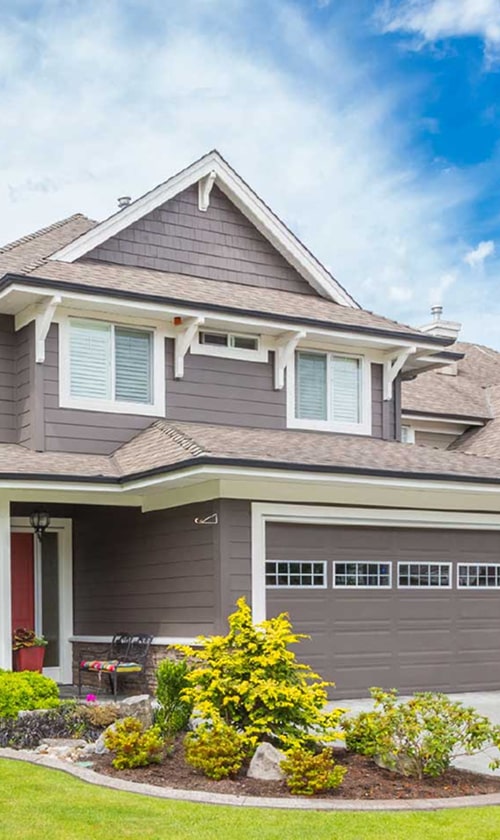Benefits of Energy Efficiency

When we upgrade to a central air conditioning unit, energy efficiency can lead to substantial cost savings and benefits. By examining lower energy bills, improvements in SEER ratings, and available tax incentives, it becomes clear why energy-efficient AC systems are valuable.
Lower Energy Bills and Long-Term Savings
Switching to a central air conditioning system that’s energy efficient can drastically reduce our monthly energy bills. These systems use less electricity, which means we pay less over time. Initial costs might seem high, but over the years, the savings accumulate.
We notice this in reduced consumption and long-term savings on energy bills. Making an upfront investment in an efficient system helps our finances because we spend less on bills over the equipment’s lifespan.
Improvements to SEER Ratings and Energy Usage
The SEER rating is vital when choosing an energy-efficient AC unit. SEER stands for Seasonal Energy Efficiency Ratio. It measures how effective an air conditioning system is. The higher the SEER rating, the better the energy performance.
Modern units often boast higher SEER ratings, resulting in more savings and better energy usage. Our commitment to energy efficiency improves by selecting a system with a high SEER rating. It ensures we use less energy while maintaining comfort.
Tax Incentives and Rebates for Energy-Efficient Upgrades
Many governments recognize the importance of promoting energy-efficient systems. To encourage upgrades, they offer tax incentives and rebates. These benefits make it financially easier for us to switch to an efficient system.
By researching available incentives, we can potentially save a significant amount on purchase and installation costs. These programs help cover part of the costs and support our decision-making process when upgrading to a more energy-efficient air conditioning solution.
Enhanced Comfort and Indoor Climate Control
Central air conditioning offers us greater comfort by providing precise temperature management and effective humidity regulation. These systems create a more enjoyable indoor environment.
Superior Temperature Control Capabilities
With central air conditioning, we achieve superior temperature control. It allows us to set exact temperatures, avoiding fluctuations that can be irritating. The system is designed to distribute cool air evenly throughout our space. This ensures each room remains at the desired temperature.
We all appreciate walking into a cool room during hot weather. Central units often include programmable thermostats for custom schedules. Adjusting temperatures for different times of the day reduces energy consumption. This combination of technology and convenience greatly enhances our home’s comfort.
Humidity Management for Indoor Environs
Humidity control is another major advantage of central air systems. High humidity can make us feel sticky and uncomfortable. Central air conditioning reduces excess moisture, creating a more pleasant environment.
We often don’t realize how much humidity impacts our comfort. It can cause mold and mildew growth if unmanaged. These systems help maintain the recommended indoor humidity levels, usually between 30% to 50%. This not only enhances our comfort but also protects our property and health. Central air thus contributes to a healthier indoor climate.
Improving Indoor Air Quality

Upgrading to central air conditioning can significantly enhance indoor air quality. By reducing allergens and using advanced air filtration systems, we create a healthier environment in our homes.
Reduction of Allergens and Indoor Pollutants
Central air conditioning helps in cutting down allergens and indoor pollutants. These systems filter out dust, pollen, and other irritants. This is essential for people with allergies or asthma. By consistently circulating air, we can reduce the concentration of these harmful particles.
Maintaining clean air filters is key. We should change filters regularly to ensure efficient operation. This practice keeps the air fresh and minimizes allergens. Also, filtered air improves comfort, making it easier for everyone to breathe and enjoy a cleaner living space.
Advanced Air Filtration Systems
The advanced air filtration systems work hard to purify our indoor air. They trap tiny particles, like smoke and pet dander. Many systems employ high-efficiency particulate air (HEPA) filters due to their effectiveness. These filters capture particles that are invisible to the eye.
With programmable thermostats, we can set optimal times for air filtration. This not only enhances air quality but also boosts energy efficiency. Regular maintenance and filter checks are important. By staying on top of this, we ensure that our air remains clean and free from unwanted pollutants.
Ease of Use and Maintenance
Central air conditioning systems offer convenience with their user-friendly controls and straightforward maintenance requirements. By reducing the need for constant adjustments and preserving efficiency through regular checks, we can enjoy a reliable cooling experience.
Streamlined Systems Operation and Control
Central air conditioning systems come with simple and intuitive controls. We can adjust temperature settings with ease, using a thermostat or smart device. Many systems now offer remote operation, allowing us to make changes even when we are away.
The streamlined operation means less hassle for us. These systems offer consistent cooling throughout the home. We don’t need to fuss with multiple units or settings. Proper installation is key, ensuring optimal performance and efficiency.
Regular Maintenance for System Longevity
Regular maintenance plays a crucial role in extending the life of our central air conditioning system. It helps prevent unnecessary wear and tear. We should hire an HVAC technician for routine services. They can check for any issues and ensure everything is functioning correctly.
Routine maintenance can include tasks such as changing filters, checking refrigerant levels, and inspecting electrical components. By keeping up with these tasks, we can enhance system longevity and efficiency.
Regular check-ups not only maximize performance but also lead to cost savings in repairs. Ensuring the system runs smoothly helps maintain comfort in our homes while minimizing energy consumption.
Environmental and Health Advantages
Upgrading to central air conditioning systems provides several benefits, especially in terms of environmental and health aspects. Energy-efficient models help in reducing our carbon footprint and contribute to a healthier living environment.
Reducing Carbon Footprint with Efficient Systems
When we choose central air conditioning units designed for energy efficiency, we decrease energy consumption. This not only leads to energy savings on our bills but also means fewer resources are used to power our cooling systems. Efficient systems create a smaller environmental impact, which is vital for reducing our overall carbon footprint.
Energy-efficient air conditioning systems also help improve air quality indoors. By maintaining consistent temperature and humidity levels, they minimize the growth of mold and allergens. Consequently, this contributes to a healthier environment inside our homes, thus providing significant health benefits for all of us.




